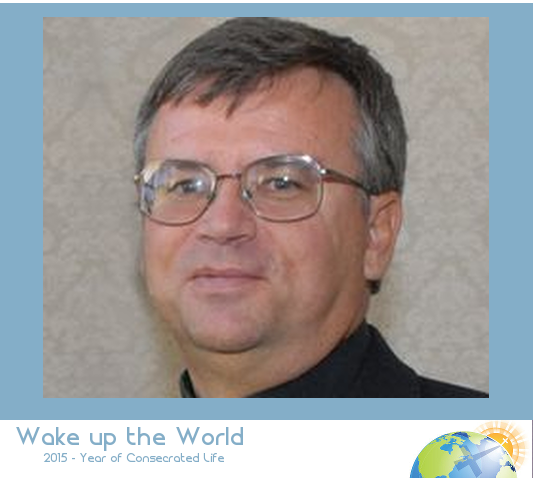
Pope Benedict’s intelligence and scholarly bent attain full flight in his Encyclical Letter Spe Salvi. It rewards the effort of a serious study on hope, but it can be difficult to read.
Yet, the Letter contains a touching and compelling story (§3). Benedict speaks about Josephine Bakhita whom Pope John Paul II canonized in 2000. (She is, of course, part of the Vincentian Family since she became a Canossian Daughter of Charity.) Born around 1869 in Darfur, Sudan, she was subject to an abusive slavery for much of her life. In 1882, she was brought to Italy—still enslaved—but she discovered a new master: the God of Jesus Christ. Benedict quotes her:
“I am definitively loved and whatever happens to me—I am awaited by this Love. And so my life is good.”
To know oneself as being “awaited” by God proclaims a beautiful truth about the nature of divine love. The simple words of our sister summon us to humble and profound introspection. The idea of being “awaited” stands out powerfully.
Most often, I conceive of my responsibility as waiting for God. I find lots of scriptural justification for that attitude. The story of the Wise and Foolish Virgins has the women waiting for the coming of the bridegroom. As it happens, some are prepared at the time of arrival and some are not. Thus, some did not wait well. The Gospel stories of the servants who await their master’s return contain instructions to be ready because they do not know the time or the hour. As he writes about the coming of the Lord, Paul says:
“But our citizenship is in heaven, and from it we also await a savior, the Lord Jesus Christ.” (Phil 3:20)
And James instructs his community:
“Be patient, therefore, brothers, until the coming of the Lord. See how the farmer waits for the precious fruit of the earth, being patient with it until it receives the early and the late rains. You too must be patient. Make your hearts firm, because the coming of the Lord is at hand.” (James 5:7-8)
Of course, the whole Book of Revelation describes the coming of the Day of the Lord. We can be forgiven for emphasizing our need to wait in patient hope for the Lord.
Yet, the other side of expectation—someone waiting for us—also receives justification from our biblical witness. Jesus tells us that he goes to prepare a place for us so that it will be ready when we arrive. The powerful Last Judgment scene in Matthew’s Gospel presents an attitude of expectation and welcome as well as judgment:
“Then the king will say to those on his right, ‘Come, you who are blessed by my Father. Inherit the kingdom prepared for you from the foundation of the world. For I was hungry and you gave me food, I was thirsty and you gave me drink, a stranger and you welcomed me, . . .’” (Matt 25:34-35)
I love the dialogue with the repentant thief: “Jesus remember me when you come into your kingdom.” Jesus promises that he will await his brother’s arrival on that very day.
Pope Francis offers a wonderful passage on the importance of knowing that God waits for us:
“God awaits you, he seeks you; how do you respond to him? Are you aware of the situation of your soul? Or have you nodded off? Do you believe God is waiting for you or does this truth consist only of ‘words’?” (Francis, Homily, 28 August 2013)
In the Vincentian world, the Constitutions of the Daughters of Charity says simply that “God awaits [us] in those who suffer” (C. 7b).
Have you ever been met at the airport or at the train depot by someone whom you have not seen for a while? What a sense of hope emerges when someone believes that God awaits his/her arrival. The banquet will not begin till he/she appears! This rings true for each one of us. It reminds and demonstrates that we are loved, as Bakhita tells us. And so, life is good (as she says) and brimming with hope. As consecrated persons, however, we must prepare our “wedding garments” so as to be ready to enter the feast and to meet the One who looks for our homecoming.







0 Comments